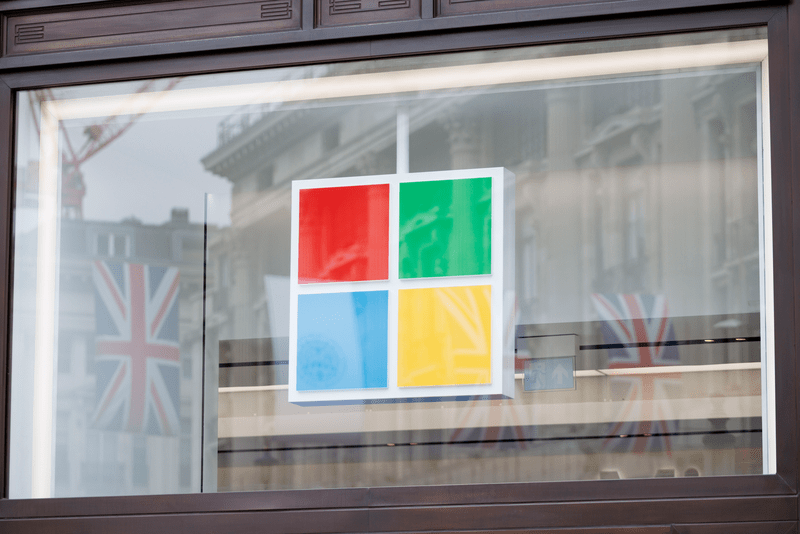13 October, 2023 by Tim Bradshaw and Suzi Ring in London
Microsoft has closed its $75bn acquisition of Activision Blizzard following its clearance by the UK regulator, ending 21 months of uncertainty over the video games industry’s biggest-ever deal.
The US tech giant announced the completion of its transaction in a regulatory filing on Friday, ahead of the start of trading on Wall Street, even though US antitrust authorities have vowed to continue their legal challenge against the deal.
The group said, in documents released on Friday, that Bobby Kotick, Activision’s chief executive, would stay on until the end of the year to help with the integration process.
Earlier on Friday, the UK’s Competition and Markets Authority gave final approval to a revised deal that involves Microsoft licensing cloud streaming rights outside of the European Economic Area to Activision’s past and future catalogue, including titles such as Call of Duty, to French games publisher Ubisoft.
“We are the only agency globally to have achieved this outcome and that is a real benefit for UK gamers,” Sarah Cardell, the CMA’s chief executive, said in an interview with the Financial Times. “We will not be swayed by any corporate lobbying.”
Cardell added that Microsoft had “gained nothing from this delay. It has simply cost them time and money and they could have reached this solution months ago.”
“businesses and their advisers should be in no doubt that the tactics employed by Microsoft are no way to engage with the CMA”
Sarah Cardell, CMA chief executive
The US Federal Trade Commission is still proceeding with a challenge against the deal in its own in-house court that could seek to unwind the merger after it closes.
Nonetheless, the CMA’s approval marks a win for Brad Smith, the Microsoft executive who led the company’s legal campaign to defend a deal that many investors and analysts had written off earlier this year.
“We’re grateful for the CMA’s thorough review and decision today,” Smith said in a statement earlier on Friday. “We have now crossed the final regulatory hurdle to close this acquisition, which we believe will benefit players and the gaming industry worldwide.”
The agreement with Ubisoft forces Microsoft to give up control of Activision’s blockbuster franchises in the cloud gaming market and prevents them from becoming exclusives on its Xbox Cloud Gaming service, which the CMA had argued would entrench the company’s dominance in a nascent market.
That concession makes the CMA the only global regulator to force significant structural changes to the deal. The lengthy process, however, left many questioning the UK agency’s approach and triggered widespread criticism of Cardell from business leaders, dealmakers and legal advisers.
On Friday, Cardell warned that “businesses and their advisers should be in no doubt that the tactics employed by Microsoft are no way to engage with the CMA”.
The UK regulator’s initial ruling in February 2023 provisionally found that the deal impeded competition in the games console market, after Sony — whose PlayStation is the market leader — vocally opposed the merger. But just a month later, after reviewing what it described as “new evidence”, the CMA reversed that position, to the surprise of many legal observers.
The CMA said in March that responses to its provisional findings showed that Microsoft would have no financial incentive to make Call of Duty exclusive to its Xbox consoles, which analysts estimate are outsold almost two to one by PlayStations.
However, Microsoft’s hopes that the agency’s about-turn would clear a path to approval were soon dashed. The CMA blocked the deal in April, citing concerns about the impact on cloud gaming. The companies lodged an appeal at the UK’s Competition Appeal Tribunal, hiring top barristers to make their case.
The CMA’s position stood at odds with the EU, which approved the deal in May following concessions from Microsoft to ensure Activision’s titles would not be exclusively available on its own cloud streaming service for 10 years.
July brought a turning point for the companies. Microsoft defeated an attempt by the Federal Trade Commission to prevent its closure in a US court, thwarting the legal action led by the agency’s chair Lina Khan. Hours after the US ruling, the CMA — by then largely isolated among global regulators in opposing the deal — said it had agreed with the companies to postpone the appeal while it considered a restructured transaction.
Within days, Sony had called a truce with Microsoft, agreeing a new licensing deal to keep Call of Duty on PlayStation following the merger.
Microsoft submitted a revised deal to the CMA in August, under which Activision’s cloud gaming rights will be sold to Ubisoft before the deal is completed. Ubisoft will then be able to offer those games on its own streaming service, while also licensing them to other cloud providers, including Microsoft. The commercial terms of the agreement were not disclosed.
The CMA granted provisional approval last month, holding a short consultation before clearing the deal on Friday.
“The CMA’s official approval is great news for our future with Microsoft, and we look forward to becoming part of the Xbox Team,” Activision said.
The European Commission on Friday ruled out a review of the merger because, it said, it did not constitute a new deal.
“Clearly we are mindful of the global nature” of these deals, Cardell said in Friday’s interview with the FT. “At the end of the day we will take the decisions we need to take for the UK.”
Additional reporting by Javier Espinoza
© The Financial Times Limited 2023. All Rights Reserved.
FT and Financial Times are trademarks of the Financial Times
Ltd. Not to be redistributed, copied or modified in any way.

















